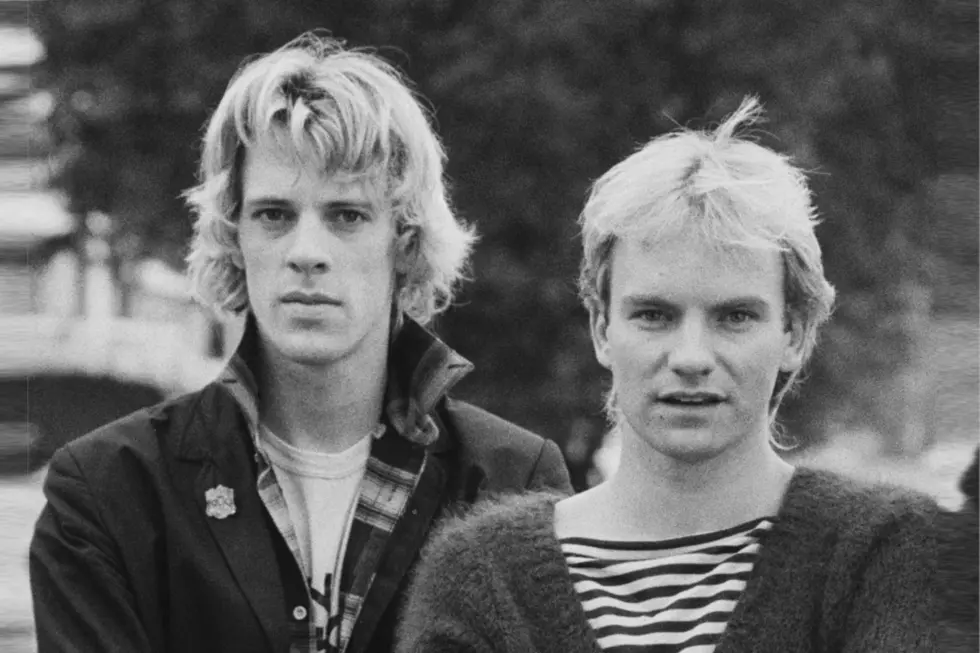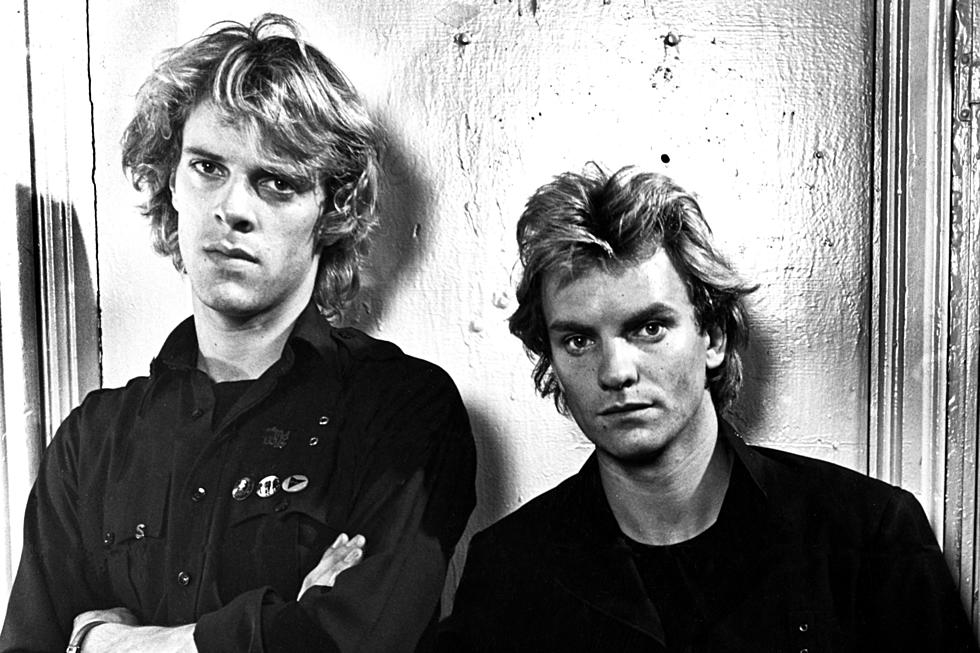
How the Police Proved They Were No Fluke on ‘Reggatta de Blanc’
Just to let you know that they weren't messing around with their debut album, Outlandos d'Amour, the Police followed it up less than a year later with more of the same – but with catchier songs and a better sense of where they, and their music, were heading.
The release of Outlandos d'Amour in November 1978 was met with some head-scratching and much quibbling over what kind of band the Police actually were. They kinda looked punk. They definitely played some foreign-sounding music. (Bob Marley's Legend was still a few years away from bringing reggae into every dorm room.) And even though they were tentatively slapped with the New Wave label, their music enveloped everything from classic pop to time-shifting jazz to, yes, a little bit of punk and New Wave.
But "Roxanne" became a hit, and suddenly it dawned on people that Sting, Andy Summers and Stewart Copeland could actually play their instruments ... and well. They were way closer to stuffy, literary-prone prog rockers than they were to spiky, slogan-spewing punks. With the Oct. 2, 1979 release of Reggatta de Blanc, they proved that their debut was no fluke.
They began recording the album right around the time Outlandos d'Amour started to break in the U.S. But they took their time making the record – a total of six months with producer Nigel Gray (who also worked on the debut) at the same studio in which they recorded Outlandos d'Amour, despite their label's protestations to go bigger.
But even with the stretched-out recording schedule – they ended up spending only four of those weeks in the studio; tours and other obligations kept them from staying in one place for too long – the Police were somewhat short on material to fill the album. So they dug through some of their old unfinished songs from their previous bands and reworked them in their new group's style.
Watch the Police's 'Message in a Bottle' Video
And from the opening track, "Message in a Bottle," Reggatta de Blanc hit harder and with more confidence than its predecessor. "Bottle" and "Walking on the Moon" both hit No. 1 in the U.K. And with the title track, the Police earned their first Grammy, for rock instrumental. The album itself also hit No. 1 in the band's native U.K., and made it to No. 25 in the U.S. (Outlandos d'Amour got to No. 23 eight months earlier.)
More than anything, Reggatta de Blanc (in ways both direct and indirect) separated the Police from the punks once and for all. The music – jagged, elastic, springy, spiny, catchy and fluid – was just way more complex than most of the stuff their so-called peers were playing. And the fact that they made a second album that's better than their first went against the very grain of punk's core character. It wouldn't take long for that audience to denounce the Police.
Which didn't bother them one bit. The following year they made their first Top 10 album, Zenyatta Mondatta, and scored the first two ("De Do Do Do, De Da Da Da" and "Don't Stand So Close to Me") of their six Top 10 U.S. hits. They clearly had bigger things on their mind than punk purity.
Reggatta de Blanc was their first assured step in that direction.
Police Albums Ranked
More From Ultimate Classic Rock









